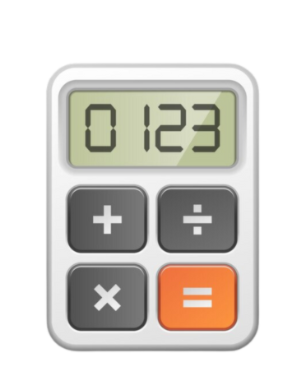What Is The Minimum Amount To Open A Demat Account
The steady growth of the Indian economy over the years has encouraged more people to invest in the stock markets. However, many remain hesitant about using a Demat account for their investments. A significant number of potential investors are unaware of the minimum amount to open a Demat account or the eligibility criteria. In this article, we will cover the basics of opening a Demat account in India.
Table of Contents
What is the Minimum Amount to Open a Demat Account?
To trade on the stock exchange, opening a Demat account is essential. The cost of opening a Demat account has significantly decreased, with many providers offering zero charges for account opening. However, depending on the Depository Participant (DP) you choose, minimum amount to open a demat account the initial cost can range between ₹0 to ₹500.
Just as a bank secures your money, a Demat account safeguards your securities, shares, and funds. With a Demat account, you can conveniently invest in stocks from the comfort of your home, eliminating the need to purchase stamps or visit the company registrar during transactions.
Additionally, a Demat account protects you from the risk of theft or loss of physical stock certificates. While opening a Demat account is often free, there are associated charges like annual maintenance fees or transaction charges that you should consider before proceeding.
Common Charges That You Need to Pay for The Upkeep of Your Demat Account
- Annual Maintenance Fee (AMC):
DPs charge an annual maintenance fee to manage your Demat account. This fee varies, with some DPs charging a flat amount of up to ₹500, while others may waive it entirely. - Demat Account Opening Charges:
Most DPs offer free Demat account opening, but some may charge an annual fee upfront, even for free accounts. Not all banks or DPs provide free account opening. - Custody Charges:
Custody fees are levied to safeguard your securities in the Demat account. These are billed annually and depend on the type and quantity of securities. Charges typically range from ₹0.5 to ₹1 per ISIN per month. - Transaction/Agency Fees:
These fees are charged each time you trade securities. Brokerage charges vary based on the DP and the trading system you choose. - Dematerialization Fees:
If you wish to convert physical share certificates into electronic form, a dematerialization fee is applicable. These charges apply only if you hold physical shares and want to convert them into the Demat format.
The charges mentioned above may remain consistent or vary at the discretion of the DP. It is advisable to compare fees, including the minimum amount to open a Demat account, across different service providers before opening an account.
Eligibility Criteria for Opening a Demat Account
- Age: Individuals above 18 years can open a Demat account. Minors require a guardian to operate the account
- Residential Status: Both Indian residents and Non-Resident Indians (NRIs) are eligible
- Documents Required:
- Identity Proof: Aadhaar, PAN Card, Passport, etc
- Address Proof: Aadhaar, Utility Bill, or Driving License
- Bank Proof: Cancelled cheque or bank statement
- PAN Card: Mandatory for all applicants
Ensure all documents are valid and up-to-date to complete the process smoothly.
How to Start Using It
Every investor is assigned a unique ID for identification, which must be used for all transactions. This helps companies track and determine if there is a need to debit or credit shares in your account.
Depository Participants (DPs), also known as call brokers, hold the Demat account. They act as intermediaries between the investor and the central depository. When opening a Demat account, it’s important to consider the minimum amount to open a Demat account, as some DPs may charge a nominal fee for account setup, while others may offer free account opening. Depository Participants (DPs), also known as call brokers, hold the Demat account. They act as intermediaries between the investor and the central depository.
Who Can Open a Demat Account?
- Any resident of India
- Non-Resident Indians (NRIs)
- Minors (with a guardian)
For Non-Individuals:
- Businesses
- Partnership firms
- Banks
- Mutual Funds
- Limited Liability Partnerships (LLPs)
- Registered or unregistered trusts
- Registered or unregistered companies
Demat Account Opening Process
Step 1: Choose a Depository Participant (DP)
Select a DP (bank, broker, or financial institution) that suits your requirements for charges, services, and the minimum amount to open a Demat account.
Step 2: Fill the Application Form
Complete the Demat account opening form, available online or at the DP’s branch
Step 3: Submit KYC Documents
Provide necessary documents such as PAN card, Aadhaar card, passport-sized photo, and address proof
Step 4: Verification
The DP verifies your documents and may conduct an in-person or online verification (e-KYC)
Step 5: Sign the Agreement
Sign an agreement that outlines the terms and conditions of using the Demat account
Step 6: Receive Account Details
After successful verification, you’ll receive your Demat account number (BO ID) and other login credentials
Step 7: Link Bank Account
Link your bank account to the Demat account for seamless trading and fund transfers
Step 8: Start Trading
Once the account is active, you can begin buying and selling securities through the DP’s platform
Conclusion
Diversifying your investments by entering the stock market is a smart move. While the risks are higher, the potential returns often exceed those of many other investment options in India. Opening a Demat account is a straightforward process, with minimal charges and fees. In fact, the minimum amount to open a Demat account is quite low, making it accessible for most investors. By stepping into the stock market and opening a Demat account, you can grow your wealth over time.
Frequently Asked Questions
Is it compulsory to pay fees for opening a Dematerialization Account?
No, it is not compulsory to pay fees for opening a Demat account in India. Many brokers and banks offer free account opening. However, the minimum amount to open a Demat account may vary, and some Depository Participants (DPs) may charge a nominal fee for account opening or include it as part of a paid service package.
What facilities can you use when you open a Demat account?
Minimum amount to Open a Demat account in India gives you access to:
- Online Trading: Buy and sell securities
- Electronic Storage: Safely store shares and securities
- Portfolio Management: Track your investments
- Easy Fund Transfers: Transfer funds between Demat and bank accounts
- Dividend Credit: Receive dividends directly
- Convert Physical Shares to Demat: Easily manage shares
- Pledge/Unpledge Securities: Use securities as loan collateral
What documents are needed to open a Dematerialization account?
- PAN Card
- Aadhaar Card
- Passport-sized Photograph
- Address Proof (e.g., utility bill, passport)
- Bank Proof (e.g., cancelled cheque)
- Signature Proof (if required)
These are needed for KYC verification.
What are the maintenance changes/hidden charges or processing fees on the Dematerialisation account?
Demat account maintenance charges (AMC) typically range from ₹300 to ₹1,000 annually, depending on the Depository Participant (DP). There may also be hidden charges such as transaction fees, custodian fees, and charges for dematerialization or re-materialization of shares. Processing fees for transferring shares between accounts can range from ₹25 to ₹100. It’s important to note that while the minimum amount to open a Demat account is often low, reviewing the full fee structure with your DP is essential to avoid any surprises.
Can a minor operate a Demat account?
Yes, a minor can operate a Demat account in India, but it requires a guardian to manage the account until the minor reaches adulthood.
How do I open a Demat account?
To open a Demat account in India, you need to choose a Depository Participant (DP), fill out the account opening form, submit KYC documents (such as PAN, Aadhaar, etc.), and complete the verification process. Depending on the minimum amount to open a Demat account, the initial charges can vary. After successful verification, you will receive your account details, and you can begin trading.
Can my Demat account have joint account owners?
Yes, a Demat account can have joint account owners in India. The account can be held by up to three individuals as joint holders. The minimum amount to open a Demat account may vary, but many providers offer free account opening, making it accessible for joint account holders to get started without a significant upfront cost.

